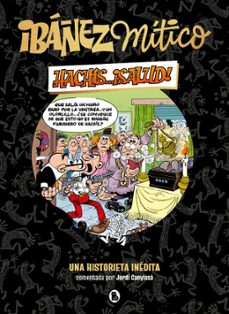Imprescindibles
Más vendidos Libros más leídos eBooks más leídos Todos los libros Todos los libros Autores destacados Series y sagas
Recomendados Libros recomendados Autores destacados Libros que inspiran Vidas con historia LGTBIQ+ English books
Ficción
Literatura Contemporánea Estudios literarios Clásicos Cuentos Poesía Teatro Libros de bolsillo Sagas literarias
Géneros literarios Novela romántica y erótica Novela negra Novela histórica Narrativa fantástica Novela de ciencia ficción Novela de terror Narrativa de humor Narrativa de viajes
No Ficción
Ciencias y tecnología Biología Ciencias Ciencias naturales Divulgación científica Informática Ingeniería Matemáticas Medicina Salud y dietas Formación Idiomas Estilo de vida Libros de Cocina Guías de viaje Narrativa de viajes Deportes Libros de Juegos Manualidades
Humanidades Autoayuda y espiritualidad Ciencias humanas Derecho Economía y Empresa Psicología y Pedagogía Filosofía Sociología Filología Biblioteconomía Estudios filológicos Estudios lingüísticos Estudios literarios Historia y crítica de la Literatura
Infantil
Juvenil
#Jóvenes lectores Narrativa juvenil Clásicos adaptados Libros Wattpad Libros Booktok Libros de influencers Libros de Youtubers Libros Spicy Juveniles Libros LGTBIQ+ Temas sociales Libros ciencia ficción Libros de acción y aventura Cómic y Manga Juvenil Cómic Juvenil Manga Shonen Manga Shojo Autores destacados Jennifer L. Armentrout Eloy Moreno Nerea Llanes Hannah Nicole Maehrer
Libros de fantasía Cozy Fantasy Dark academia Hadas y Fae Romantasy Royal Fantasy Urban Fantasy Vampiros y hombres lobo Otros Misterio y terror Cozy mistery Policiaca Spooky Terror Thriller y suspense Otros
Libros románticos y de amor Dark Romance Clean Romance Cowboy Romance Mafia y amor Romance dramatico Romance dramatico Romcom Sport Romance Otros Clichés Enemies to Lovers Friends to Lovers Hermanastros Slow Burn Fake Dating Triángulo amoroso
Cómic y Manga
Novela gráfica Novela gráfica americana Novela gráfica europea Novela gráfica de otros países Personajes, series y sagas Series y sagas Star Wars Superhéroes Cómics DC Cómics Marvel Cómics otros superhéroes Cómics Valiant
eBooks
Literatura Contemporánea Narrativa fantástica Novela de ciencia ficción Novela de terror Novela histórica Novela negra Novela romántica y erótica Juvenil Más de 13 años Más de 15 años Infantil eBooks infantiles
Humanidades Autoayuda y espiritualidad Ciencias humanas Economía y Empresa Psicología y Pedagogía Filosofía Historia Historia de España Historia Universal Arte Cine Música Historia del arte
Ciencia y tecnología Ciencias naturales Divulgación científica Medicina Salud y dietas Filología Estudios lingüísticos Estudios literarios Historia y crítica de la Literatura Estilo de vida Cocina Guías de viaje Ocio y deportes
Adam Fergusson
Adam Fergusson se graduó en historia en Cambridge y trabajó como periodista para el Glasgow Herald, The Statist y The Times. Ha sido miembro del Parlamento Europeo y asesor especial del Foreign Office. Pertenece a la Royal Society of Literature.
Recibe novedades de ADAM FERGUSSON directamente en tu email
Filtros
Del 1 al 2 de 2
Old Street Publishing 9781906964535
This is, I believe, a moral tale. It goes far to prove the revolutionary axiom that if you wish to destroy a nation you must corrupt its currency. Thus must sound money be the first bastion of a societys defence. In 1923, with its currency effectively worthless (the exchange rate in December of that year was one dollar to 4,200,000,000,000 marks), the Weimar Republic was all but reduced to a barter economy. Expensive cigars, artworks and jewels were routinely exchanged for staples such as bread; a cinema ticket could be bought for a lump of coal, and a bottle of paraffin for a silk shirt. In desperation, the Bavarian Prime Minister submitted a Bill to the Reichsrat proposing that gluttony be made a penal offence, his exact definition of a glutton being one who habitually devotes himself to the pleasures of the table to such a degree that he might arouse discontent in view of the distressful condition of the population. Since its first publication in 1975, When Money Dies has become the classic history of these bizarre and frightening times. Weaving elegant analysis with a wealth of eyewitness accounts by ordinary people struggling to survive, it deals above all with the human side of inflation: why governments resort to it, the dismal, corruptive pestilence it visits on their citizens, the agonies of recovery, and the dark, long-term legacy. And at a time of acute economic strain, it provides an urgent warning against the addictive dangers of printing money -- shorthand for deficit financing -- as a soft option for governments faced with growing unrest and unemployment.
Ver más
eBook
Alianza Editorial 9788420673851
La República de Weimar fue escenario, durante la década de 1920, de la mayor inflación que registra la historia europea contemporánea. A lo largo de cuatro años, los precios subieron de forma tan vertiginosa que hicieron necesaria la enfebrecida fabricacion de papel-moneda y la multiplicacion casi inverosimil de los medios de pago. En 1923, cuando el tipo de cambio con el dolar alcanzaba los 4.200.000.000.000 marcos, la Republica de Weimar practicamente se vio reducida a una economia de intercambio: joyas por productos basicos como el pan, una entrada para el cine por algo de carbon, una botella de parafina por una falda de seda. Combinando el analisis con numerosos testimonios de la epoca, Adam Fergusson narra el fracaso de una generacion europea -incapaz de comprender el alcance de sus actos y las consecuencias de la destruccion de las clases medias- y el irresistible ascenso al poder de los regimenes autoritarios. Un libro lleno de relevancia para nuestra epoca.
Ver más
Tapa blanda
Del 1 al 2 de 2


![harry potter y el cáliz de fuego (harry potter [ediciones ilustra das interactivas] 4)-j.k. rowling-9788419868497](https://imagessl7.casadellibro.com/a/l/s5/97/9788419868497.webp)

























